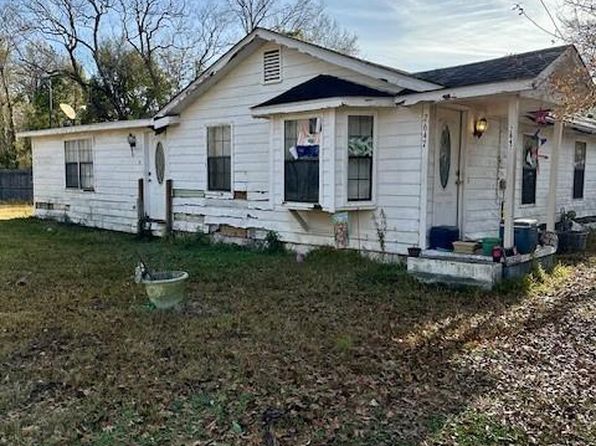In real estate investments, fixer-upper properties have long been a favorite among investors seeking to maximize their returns. One specific niche within this domain that often gets overlooked is fixer-upper mobile homes. These compact dwellings can offer substantial profitability if approached with the right strategies. If you’re considering delving into the world of fixer-upper mobile homes, here’s a comprehensive guide on how to find a profitable one.
Understanding the Appeal of Fixer-Upper Mobile Homes
Before diving into the specifics of finding a profitable fixer-upper mobile home, it’s crucial to understand why this niche is appealing in the first place. Mobile homes often have lower purchase prices than traditional houses, making them accessible to investors with varying budgets. Additionally, due to their smaller size and simpler construction, they tend to require less capital for renovations.

Moreover, the demand for affordable housing options continues to rise, making mobile homes an attractive choice for buyers looking to enter the real estate market without breaking the bank. As such, investing in a fixer-upper mobile home can offer a lucrative opportunity to capitalize on this growing demand while also adding value through renovations.
Researching the Market
Like any real estate investment, success in finding a profitable fixer-upper mobile home begins with thorough market research. Start by identifying locations with high demand for mobile homes, such as areas with a shortage of affordable housing or regions experiencing population growth. Websites like Zillow, Realtor.com, and local real estate listings can provide valuable insights into market trends, average sale prices, and property availability.
Additionally, consider factors such as local economic conditions, job opportunities, and demographic trends. Areas with strong job markets and a growing population are more likely to have a steady demand for mobile homes, increasing the potential for profitability.
Setting Your Budget
Once you’ve narrowed down potential market areas, it’s essential to establish a realistic budget for your fixer-upper mobile home investment. This budget should encompass not only the purchase price of the property but also renovation costs, holding expenses, and potential contingencies.
When evaluating properties, factor in the cost of repairs and upgrades needed to make the mobile home market-ready. Obtain estimates from contractors or use online resources to gauge the typical costs of common renovation projects such as roof repairs, plumbing updates, flooring replacement, and cosmetic enhancements.
Finding Suitable Properties
With a clear understanding of your target market and budget in place, it’s time to start searching for suitable fixer-upper mobile homes. Consider working with a real estate agent specializing in mobile homes or leverage online platforms to identify listings that match your criteria.
When evaluating properties, pay attention to key factors such as:
- Location: Choose areas with strong rental or resale potential, preferably near amenities like schools, shopping centers, and public transportation.
- Condition: Look for properties in need of cosmetic upgrades rather than major structural repairs, as these are generally more cost-effective to renovate.
- Price: Ensure the purchase price aligns with your budget and allows room for renovation expenses while still maintaining a profitable margin.
- Market Demand: Analyze the demand for mobile homes in the area to gauge potential rental or resale value post-renovation.
Conducting Due Diligence
Before finalizing a purchase, conduct thorough due diligence to uncover any potential issues or red flags associated with the property. This includes:
- Inspections: Hire a qualified inspector to assess the mobile home’s condition, including its structural integrity, electrical and plumbing systems, roofing, and HVAC (heating, ventilation, and air conditioning) systems.
- Title Search: Verify the property’s ownership history and ensure there are no liens or legal encumbrances that could impede the sale.
- Zoning and Regulations: Familiarize yourself with local zoning regulations, homeowners’ association rules (if applicable), and any mobile home placement or renovation restrictions.
Creating a Renovation Plan
Once you’ve acquired a fixer-upper mobile home, develop a comprehensive renovation plan to guide your investment strategy. Prioritize repairs and upgrades with the highest return on investment (ROI) and appeal to potential buyers or renters. Key renovation areas may include:
- Curb Appeal: Enhance the mobile home’s exterior with landscaping, fresh paint, new siding, and updated entryways to create a positive first impression.
- Interior Updates: Modernize the interior with new flooring, updated fixtures, fresh paint, and kitchen and bathroom upgrades to improve livability and aesthetic appeal.
- Energy Efficiency: Install energy-efficient appliances, lighting, insulation, and HVAC systems to reduce utility costs and attract eco-conscious buyers or renters.
- Functional Improvements: Address structural issues, plumbing leaks, electrical problems, or safety hazards to ensure the mobile home meets building codes and safety standards.
Marketing and Exit Strategy
Once the renovations are complete, it’s time to market the property effectively to maximize its profitability. Consider the following strategies:
- Professional Photography: Hire a professional photographer to capture high-quality images showcasing the renovated mobile home’s features and improvements.
- Online Listings: Promote the property to potential buyers or renters using popular real estate websites, social media platforms, and local listing services.
- Open Houses and Showings: Host open houses and schedule private showings to allow interested parties to tour the mobile home and envision themselves living there.
- Networking: Leverage your professional network, real estate connections, and local community outreach to spread the word about the renovated property.
Regarding your exit strategy, consider whether you intend to sell the mobile home for a quick profit or hold it as a rental property for ongoing passive income. Evaluate market conditions, tax implications, and long-term investment goals to make an informed decision.
Final Thoughts
Investing in a profitable fixer-upper mobile home requires a strategic approach encompassing thorough market research, budgeting, property selection, due diligence, renovation planning, and effective marketing. By leveraging these strategies and staying informed about market trends and opportunities, you can unlock the potential for significant returns on your real estate investment. Remember to seek guidance from real estate professionals, contractors, and industry experts to enhance your chances of success in this lucrative niche.

